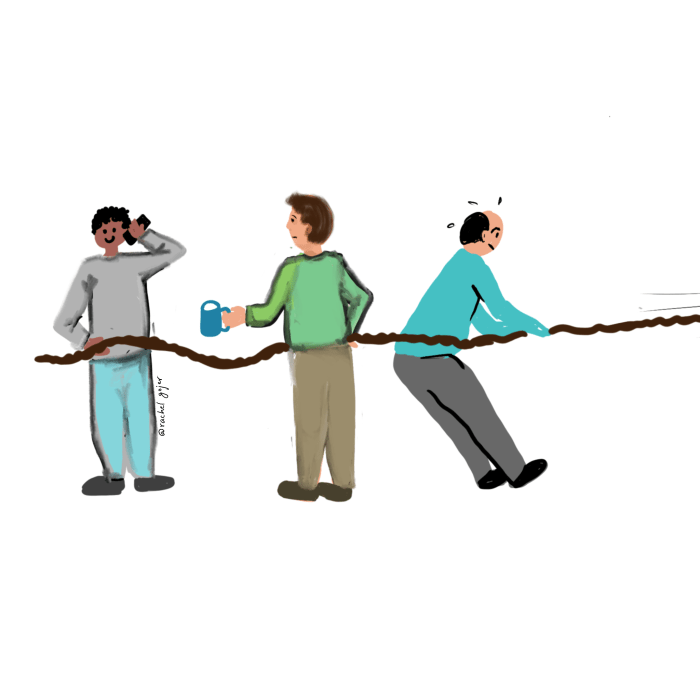Challenging team goals greatly increase the incidence of social loafing – As challenging team goals take center stage, they bring with them an unintended consequence: the increased incidence of social loafing. This phenomenon, where individuals exert less effort when working in a group, poses a significant threat to team performance. This exploration delves into the intricate relationship between challenging team goals and social loafing, examining the factors that contribute to this behavior and its detrimental impact on team outcomes.
Understanding Social Loafing: Challenging Team Goals Greatly Increase The Incidence Of Social Loafing

Social loafing refers to the phenomenon where individuals exert less effort when working in a group compared to when working alone. This decrease in individual performance is attributed to the diffusion of responsibility among group members, leading to a sense of reduced accountability and diminished motivation.
Factors that contribute to social loafing include:
- Group size:Larger groups tend to experience higher levels of social loafing due to the increased anonymity and reduced individual visibility.
- Task complexity:Complex tasks require more cognitive effort, which can lead to increased social loafing as individuals may feel overwhelmed or incompetent.
- Goal clarity:Unclear or ambiguous goals can contribute to social loafing by creating confusion and reducing motivation.
- Evaluation apprehension:Concerns about being evaluated negatively by others can inhibit individuals from fully participating in group tasks.
Challenging Team Goals

Challenging team goals are those that are ambitious and require a high level of effort and coordination from all team members. While challenging goals can motivate teams to achieve great things, they can also increase the incidence of social loafing if not properly managed.
Here are some examples of challenging team goals:
- Launching a new product within a tight deadline
- Increasing sales revenue by a significant percentage
- Winning a prestigious industry award
- Solving a complex problem that has stumped other teams
When team goals are challenging, individuals may feel overwhelmed or inadequate, leading them to reduce their effort and rely on others to carry the load.
Impact of Social Loafing on Team Performance

Social loafing has several negative consequences for team performance, including:
- Reduced productivity:Social loafing can significantly decrease the overall output and efficiency of a team.
- Missed deadlines:Teams with high levels of social loafing may struggle to meet project deadlines due to the lack of individual effort.
- Lower quality of work:Social loafing can lead to a decrease in the quality of work produced by the team as individuals may not be fully engaged in the task.
- Increased conflict:Social loafing can create resentment and conflict among team members who feel that others are not pulling their weight.
Strategies to Reduce Social Loafing

To reduce social loafing in teams, several strategies can be implemented:
- Set clear and specific goals:Goals should be well-defined, challenging but achievable, and aligned with the team’s values.
- Create a positive and collaborative team environment:Foster a culture of respect, trust, and open communication where individuals feel valued and supported.
- Establish individual accountability:Assign specific roles and responsibilities to each team member to ensure that everyone is contributing to the team’s success.
- Provide regular feedback:Offer constructive feedback to team members on their performance and contributions to promote accountability and improvement.
- Recognize and reward individual contributions:Acknowledge and celebrate the efforts and achievements of individual team members to motivate them and encourage sustained performance.
Expert Answers
What are the key factors that contribute to social loafing?
Factors such as anonymity, lack of individual accountability, and the perception of expendability can contribute to social loafing.
How does social loafing impact team performance?
Social loafing can hinder team productivity, goal achievement, and overall team effectiveness.
What strategies can be implemented to reduce social loafing?
Strategies include fostering a sense of individual accountability, promoting open communication, and creating a positive and supportive team environment.